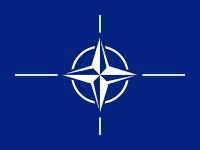The North Atlantic Treaty Organization last week announced that it is contemplating scaling back its highly publicized NATO Response Force, the Alliance's rapid reaction military force and its catalyst for military transformation. As is often the case for NATO, the real world intruded on its military ambitions. "There is an examination underway" within NATO to see how to sustain the response force, which requires a steady state of 25,000 troops trained and ready to deploy, said spokesman James Appathurai at a press briefing in Brussels. "We could have an NRF that is not always at 25,000" he postulated, "rather than keeping the whole block all the time on call." The response force was declared fully operational less than a year ago, but the inability of the alliance nations to meet their stated intentions is a recurring reality of NATO. Military ambitions regularly outpace their political and economic backing.
Wartime Demands Force NATO to Scale Back Ambitions for Response Force

